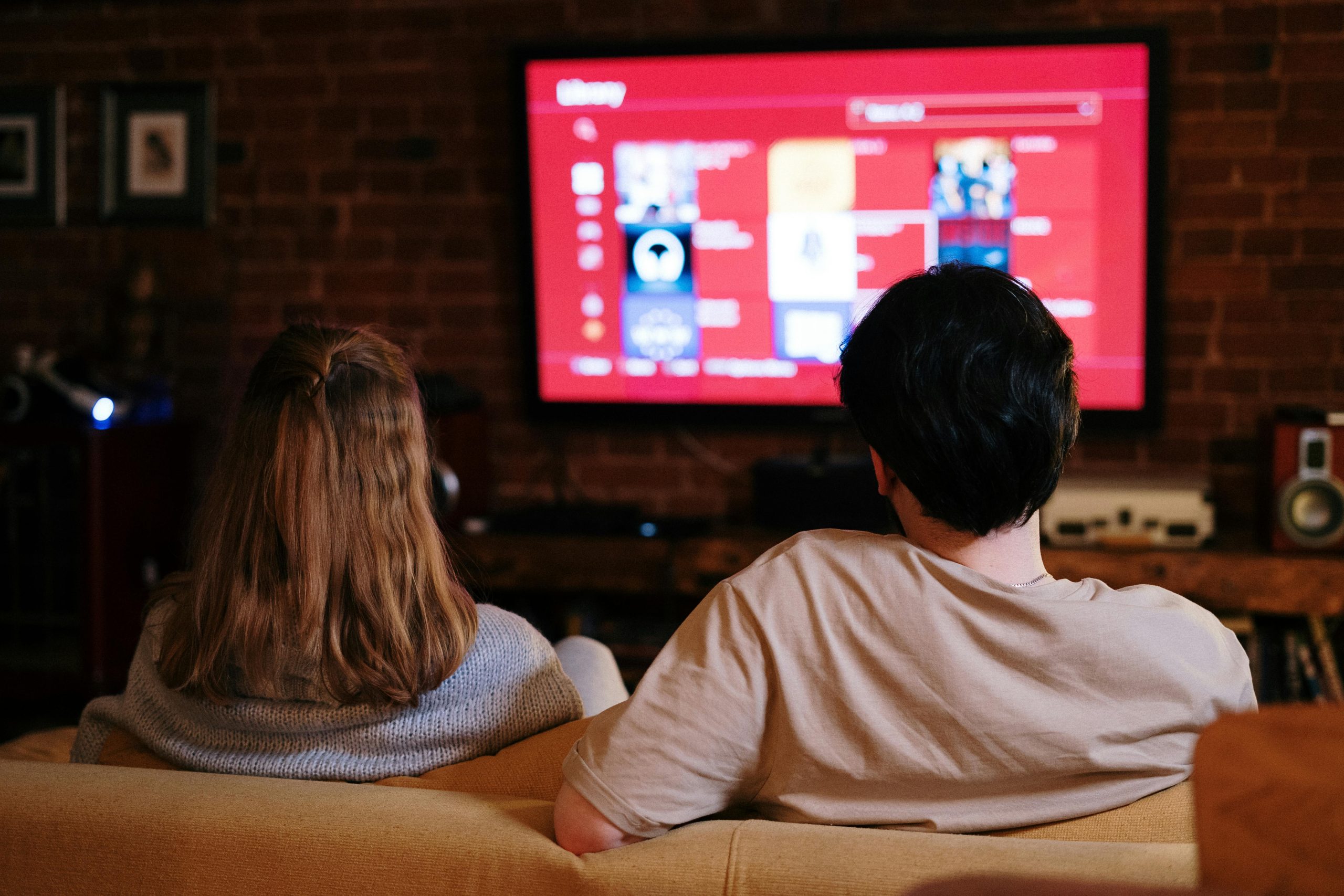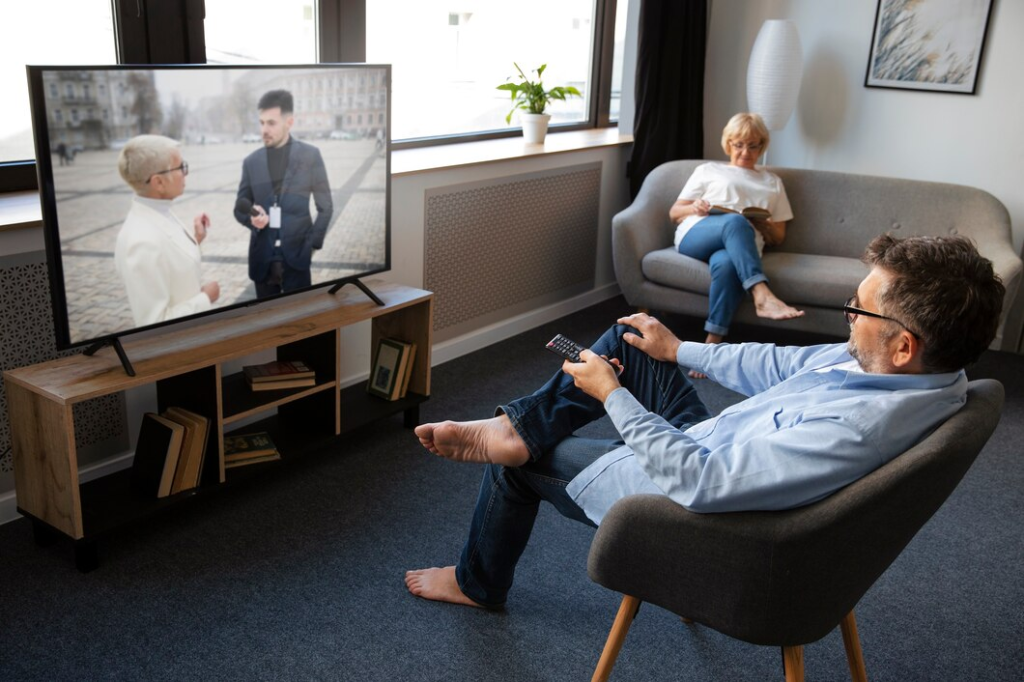Your cart is currently empty!
That Smart TV You Just Bought May Be Spying On You, FBI Warns

With Black Friday in the rearview mirror, many shoppers might have indulged in one of the most popular holiday buys—a brand new Smart TV. But before you get too comfortable with your high-tech purchase, there’s a recent warning from the FBI that might make you think twice about the convenience. According to the agency, your shiny new TV, connected to the internet, could be a gateway for hackers to access your home network. That’s right—something as innocent as binge-watching your favorite shows might expose you to potential cyber threats.
It’s easy to forget that the devices we use every day, like Smart TVs, are much more than just screens. They’re mini computers with microphones, cameras, and constant internet connections. And with technology like Alexa already ingrained in many homes, the idea of “always-on” isn’t so far-fetched anymore. But it is a little unsettling to realize how vulnerable these conveniences might make us.
Why Smart TVs Aren’t as Safe as You Think

It’s hard to beat the convenience of a Smart TV, with features like voice commands, built-in apps, and even facial recognition technology. But as cool as all of that sounds, there’s a downside that many people don’t think about: these devices can put your privacy at risk. The FBI has pointed out that Smart TVs aren’t always built with the best security, which means hackers could potentially use them to access your home network. So, while you’re binge-watching your favorite shows, someone else could be watching you—or worse, stealing your personal information.
It makes sense when you think about it. We live in a world where devices are always connected and listening, which definitely raises some privacy concerns. Unfortunately, many Smart TVs just aren’t well-protected, leaving us vulnerable to cyberattacks. It’s not just about what’s on your screen anymore—it’s about making sure no one’s looking in on you.
How Your Smart TV Could Be Invading Your Privacy
Most of us just see a Smart TV as a fun way to stream shows or browse apps without lifting a finger. But there’s a side to these TVs that doesn’t get talked about enough—the risks that come with all that built-in tech. Many Smart TVs have cameras and microphones, which might sound cool until you realize they’re always on and possibly always watching or listening. And because manufacturers often don’t do enough to secure these features, it’s like leaving the front door of your house unlocked.
The truth is, hackers can exploit these weaknesses to get into your home network, snoop around, steal personal information, or even spy on you. It’s a scary thought, but something we need to be aware of. What was designed to make life more convenient could end up being a threat to our privacy.
Voice Commands: The Hidden Privacy Risks

Voice commands make using a Smart TV feel effortless. Saying things like, “Play the next episode,” without needing a remote feels convenient and futuristic. But what you might not realize is that every time you use voice control, your Smart TV is collecting and storing your voice data. And often, companies aren’t clear about how long they keep that data or what they do with it, which could include using it for targeted ads or selling it to third parties.
While the convenience of voice commands is tempting, it’s important to consider the trade-off. Do you really want your TV listening to everything you say? It might be a good idea to check your TV’s privacy settings and disable voice commands if you’re worried about where your voice data might end up.
Why Privacy Isn’t a Priority for Smart TV Manufacturers
You’d think with all the high-tech features Smart TVs offer, manufacturers would go above and beyond to protect your privacy. Unfortunately, that’s not the case. Many companies are more focused on packing in flashy features than securing the data they collect or ensuring the devices are hacker-proof. It’s frustrating to realize that, as consumers, we’re often left to fend for ourselves when it comes to privacy.
The truth is, there aren’t strict regulations forcing manufacturers to protect your information, so they don’t always make it a priority. Instead of assuming your Smart TV is safe, it’s important to take matters into your own hands. We’re living in a time where protecting our privacy is becoming more and more our own responsibility, rather than something we can trust companies to handle.
Simple Steps to Secure Your Smart TV
Thankfully, there are steps you can take to protect your privacy when using a Smart TV. The first thing to do is find out exactly what features your TV has. Does it have a camera or microphone? Is it constantly collecting data? A quick internet search with your TV’s model number and the words “camera” or “microphone” can help you figure out what you’re dealing with.
Next, don’t settle for the default security settings. Manufacturers often leave security weak, so it’s a good idea to change the passwords if possible. And if you can, turn off the cameras, microphones, or any personal data collection. If those features can’t be disabled, consider covering the camera with black tape—it’s a simple but effective trick.
Also, check if your TV manufacturer regularly updates the device with security patches. If they don’t, it might be time to question whether you want to stick with that model. Always review the privacy policies for both the TV maker and any streaming services you use, to understand what data they’re collecting and how it’s being used.
The Future of Smart Tech and Personal Responsibility

As we move forward in this age of smart technology, we need to accept that these devices are here to stay. Our homes are becoming filled with gadgets that are constantly connected to the internet, and while they make life more convenient, they also pose new risks. It’s up to us to be proactive about our privacy and security.
The FBI’s warning is a reminder that we can’t just rely on manufacturers to protect us. We have to be vigilant. This means doing research, understanding what features our devices have, and making sure we’re taking the right steps to safeguard our data. It’s a new reality where we need to think carefully about what we’re giving up in exchange for convenience. The more we know, the better we can protect ourselves.
